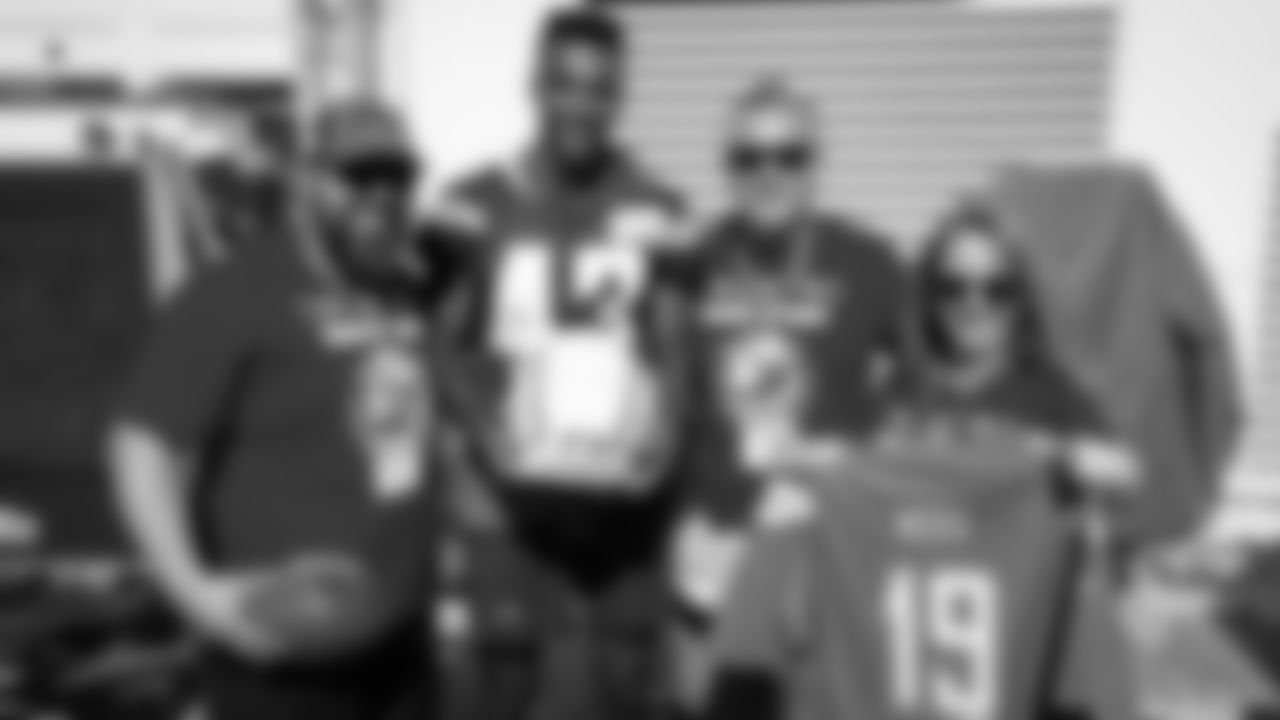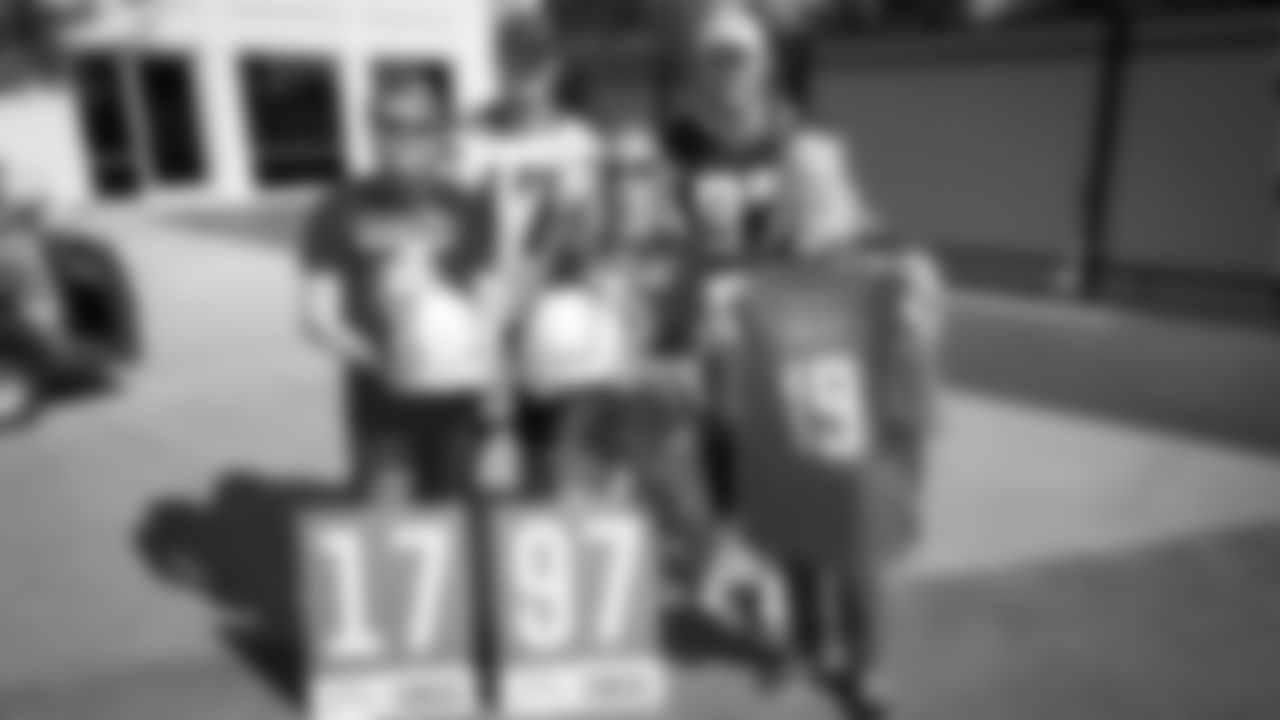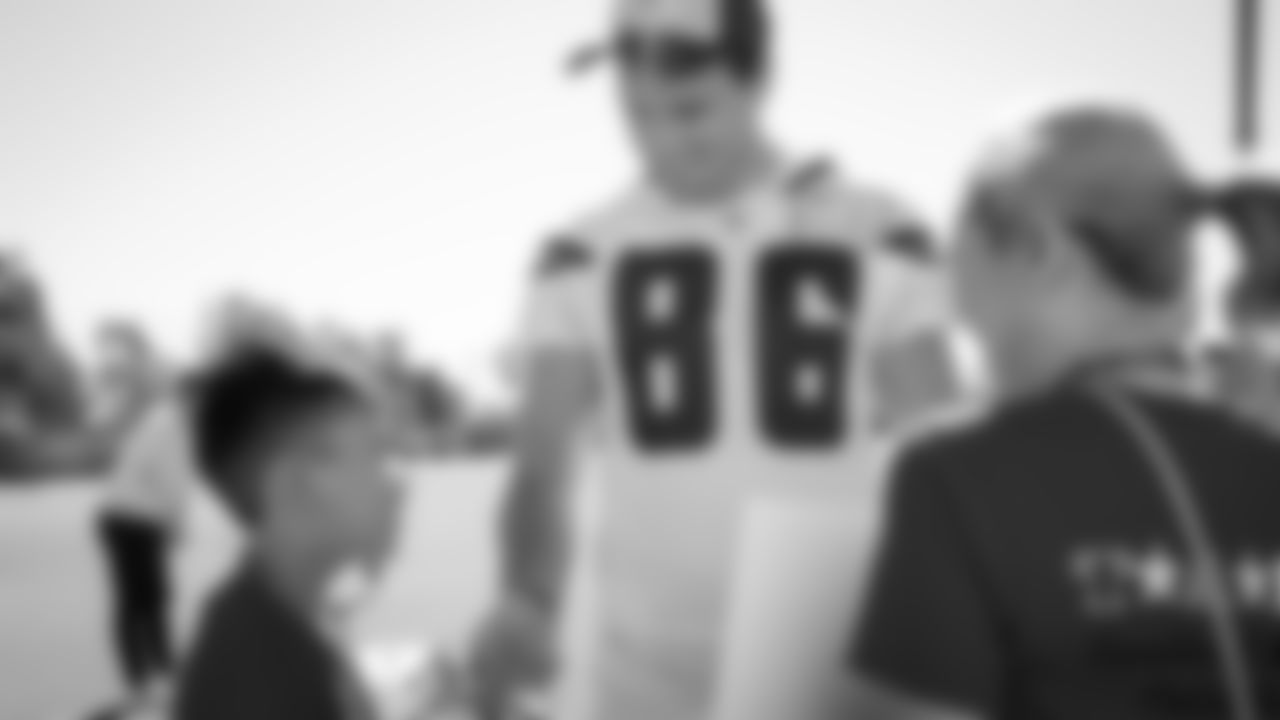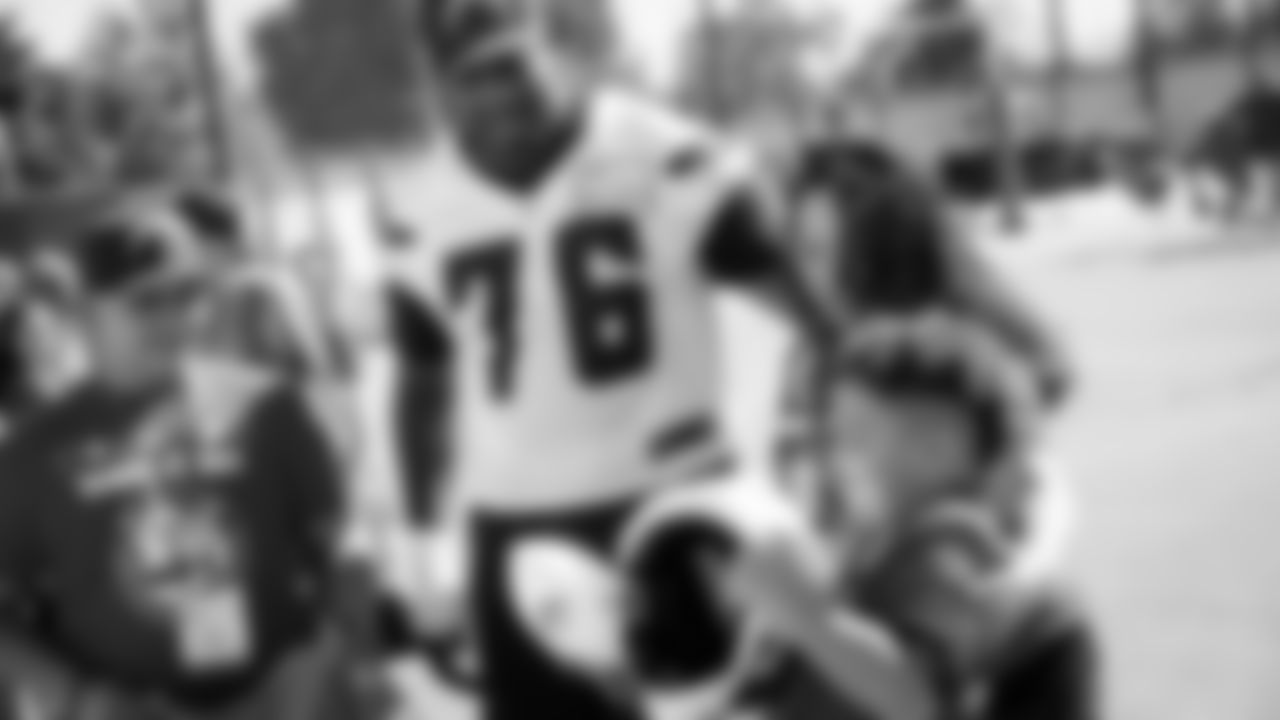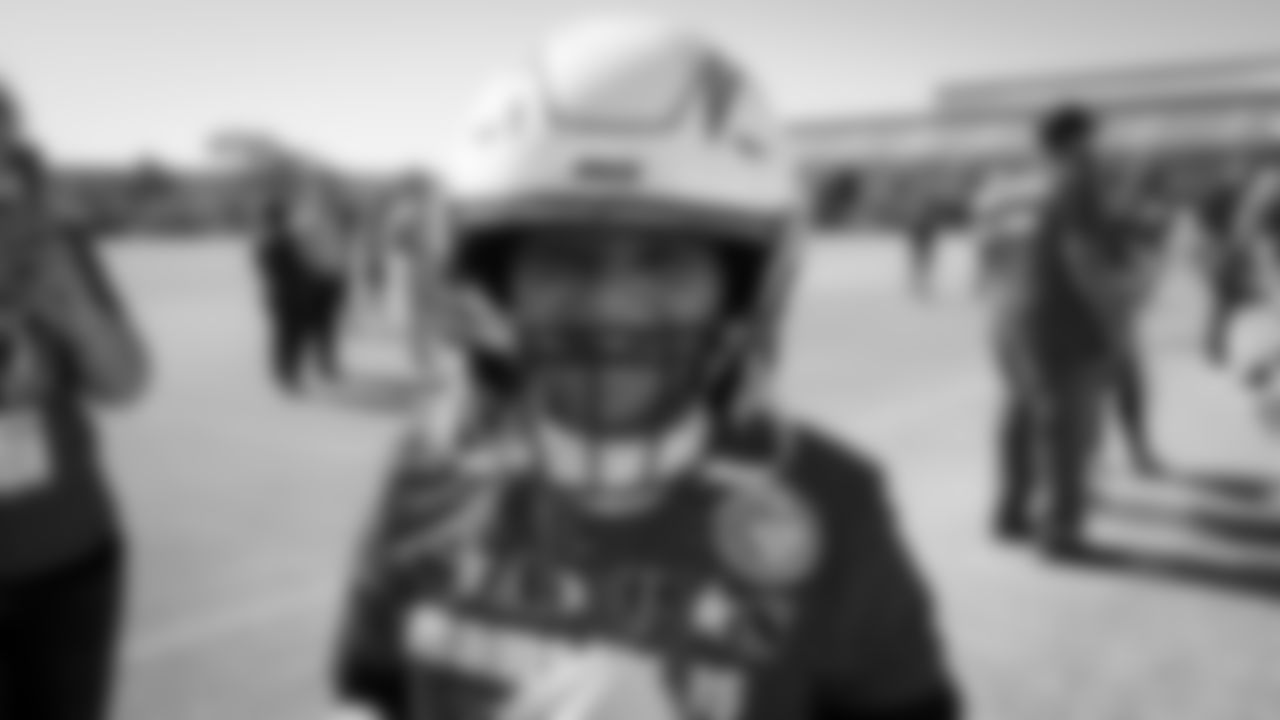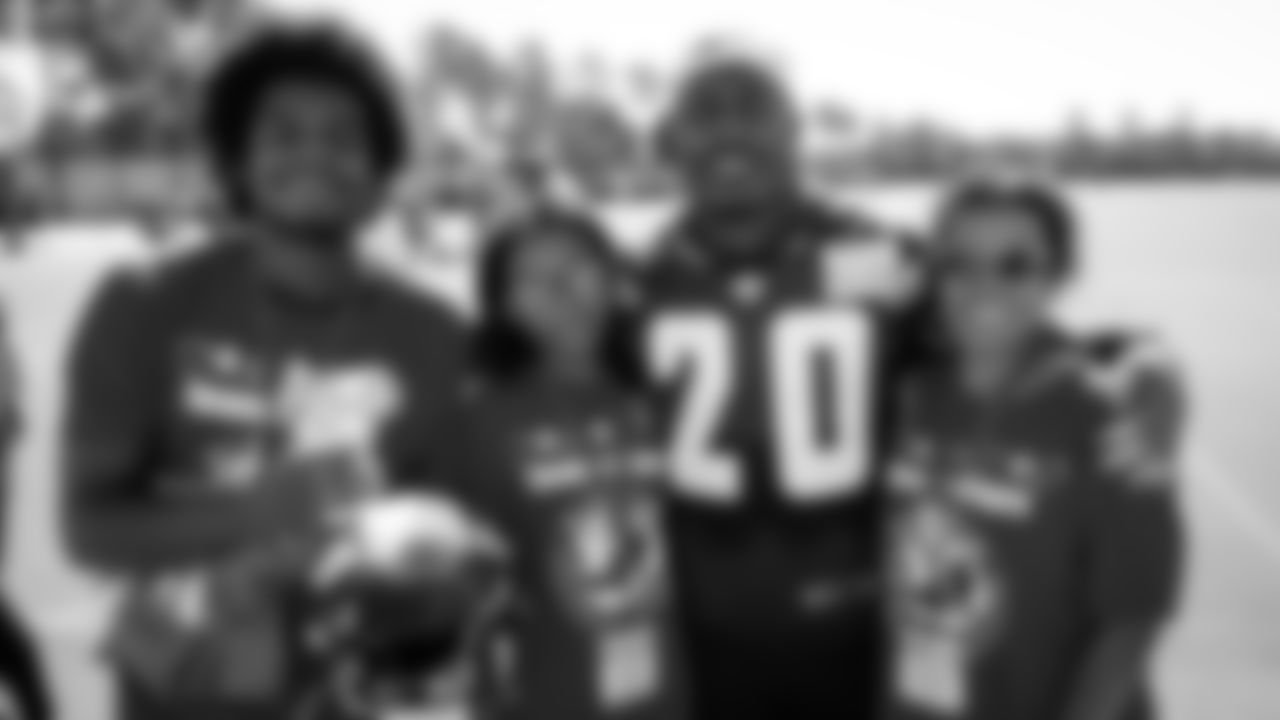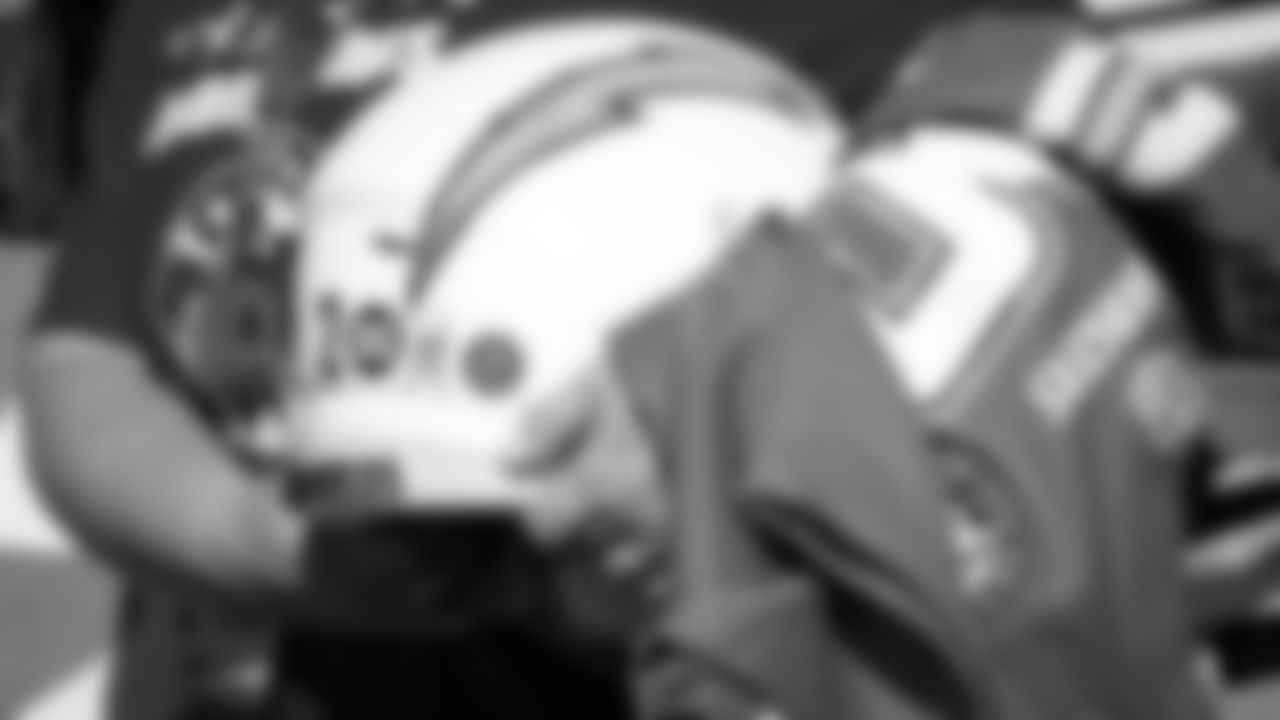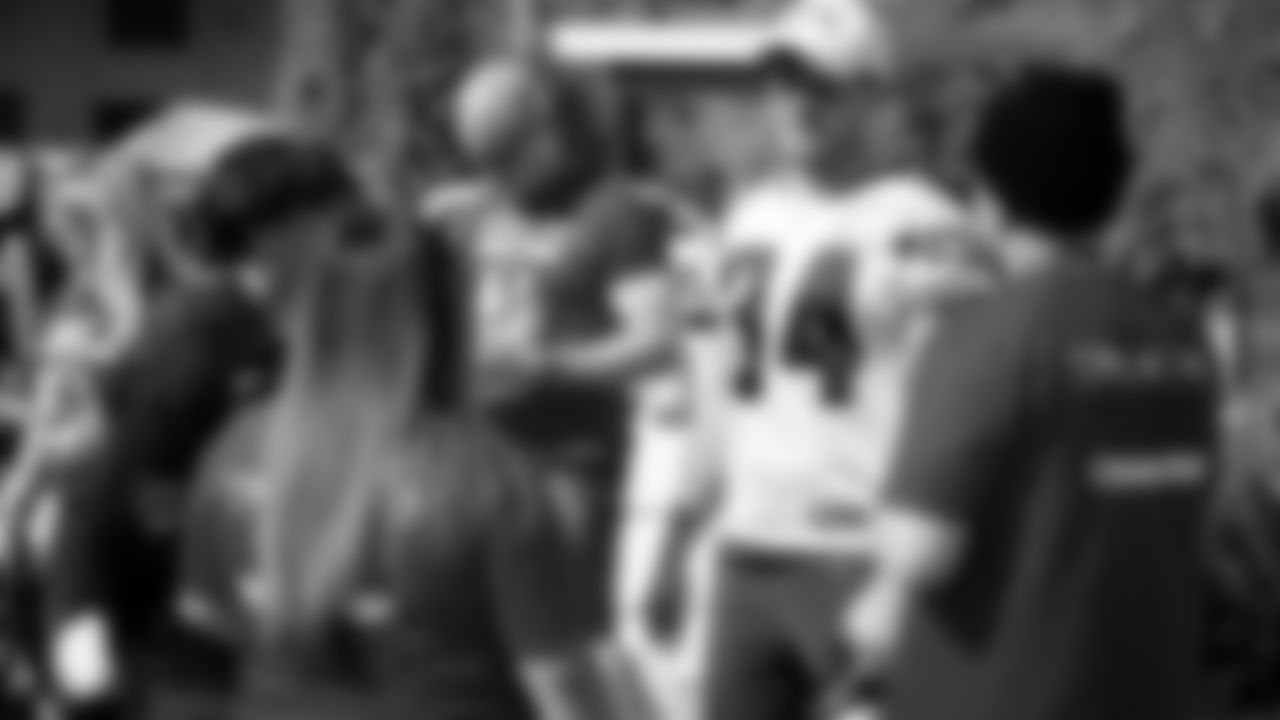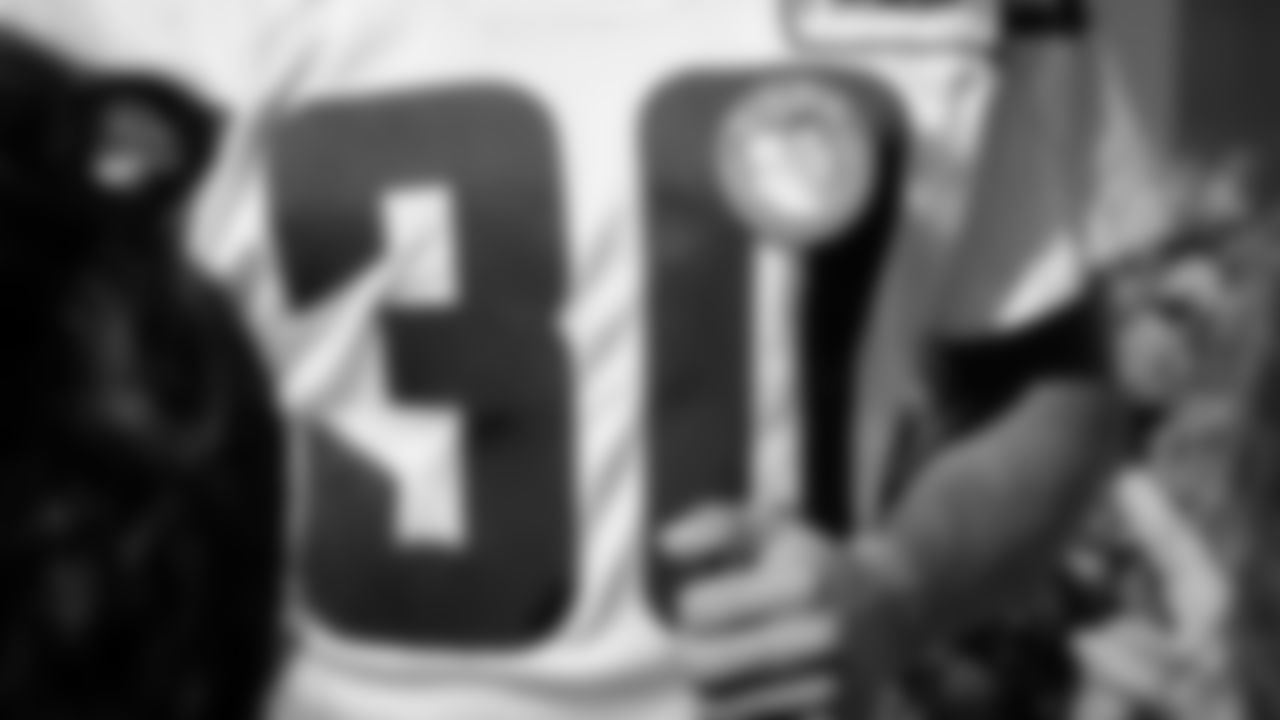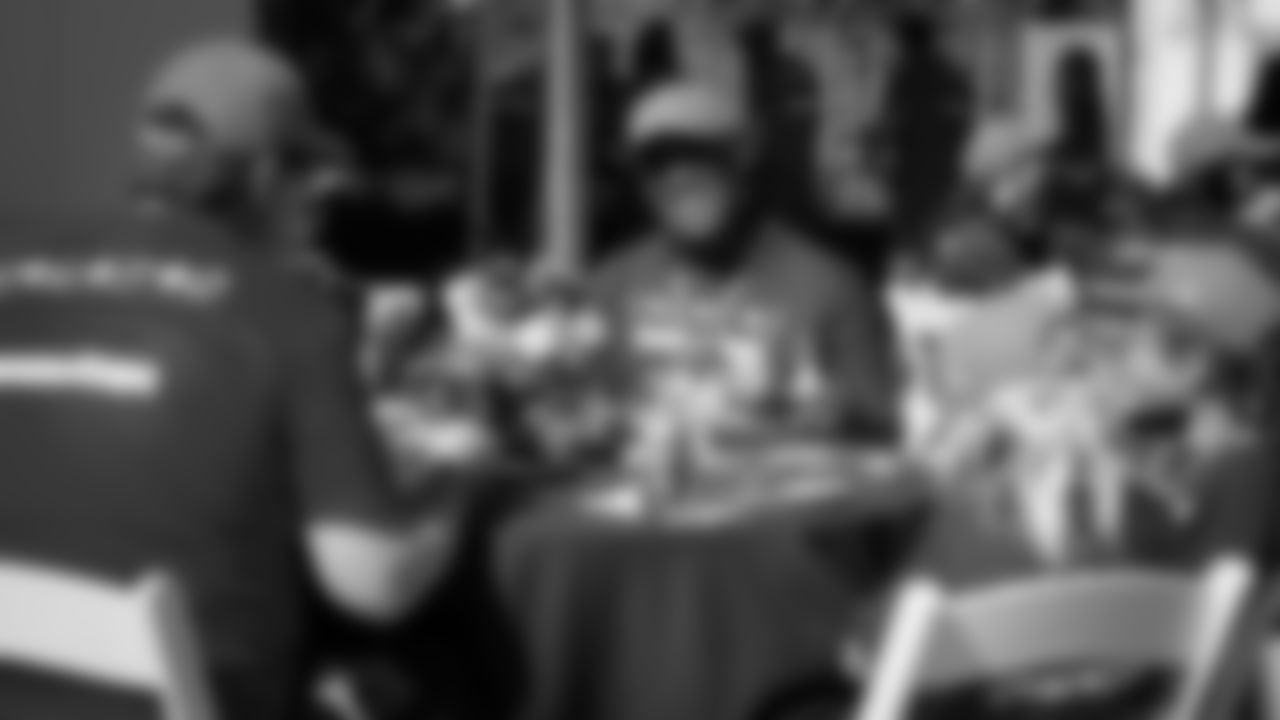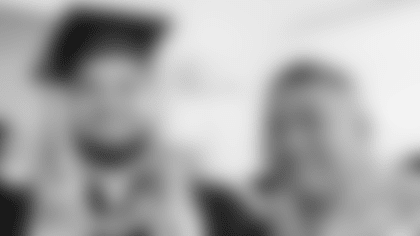Angel Ojeda was 14 months old when his father, Army Specialist Ramon "Ray" Ojeda, was killed in combat. Fifteen years later, on Friday, Angel and his family met with Chargers Pro Bowler Russell Okung, who could relate to the young man.
"I'm looking at Angel Ojeda…and I was kind of seeing myself," Okung said. "Our situations are in no way comparable, but I lost my father at a really young age and could never really have a relationship with him. We both lost our fathers to something that's extremely brutal and violent. So, I know what it's like to experience loss and to learn how to try and grieve through such a (difficult) situation."
Angel's mother and Ray's widow, Jazmín, said that Okung spoke with her son about how strong and determined he became because he was forced to grow up without a father.
"I know that means a lot to Angel," Jazmín said. "To hear from somebody else who's gone through the same thing and to see where (Okung) is, to be in the NFL and be the person that he is, that's a big thing. It means a lot for him to spend a lot of time with us and tell us some of his private life."
Okung also shared that he made sure to spend most of the time when he was recently sidelined with his newborn son, because having not had that time with his father growing up, he fully appreciates its significance.
The Bolts' offensive tackle said that the idea of speaking to Angel and the Ojeda family was difficult for him, but it ended up being a powerful experience.
"It's nerve-racking, because you don't know exactly what to say and how to say things," Okung said. "Usually when you're speaking to the media, you have a good understanding of what questions are coming and how to interact, but how do you talk to someone in such a peculiar situation that most people in America don't go through? I had a chance to honor them, and I tried to do my best with that. I feel like we met each other in a similar place, and I was very grateful to speak with them and share."

Jazmín said the meeting was important to Angel and her other son (from a different marriage, who was born five years after Ray's passing), Christien, because football has assumed an integral role in their family.
"Being a single parent, the way I connect with my boys is through football," Jazmín said. "Being able to be here today is really overwhelming, but it's amazing."
Jazmín has finally found success after encouraging Angel to give football a chance for years.
"This year, he tried football, and he loves it," Jazmín said. "I always tell him, 'You're not alone. Other people go through (adversity). You just have to find a healthy outlet.' And that's what he's found in football."
Ray was a huge football fan himself and was born and raised in San Diego. When he and Jazmín first started watching football together, they were big fans of LaDainian Tomlinson in his Chargers prime.
Upon meeting Okung Friday, the Ojeda family gave him a button with Ray's picture on it, so he'll have a tangible reminder of their fallen hero.
"I feel like Ray Ojeda was humanized," Okung said. "That's something I feel like gets lost. This man had a family and ambitions and dreams and things he wanted for his family, and now these things can't come to fruition."
Though Angel will never truly know his father, he said that family and friends have told him over the years all about his dad, and as a result, he has a picture in his head. And Angel's mother often tells him how much like his father he is.
"Ray was always the outgoing one, the jokester, the comedian, always made someone laugh," Jazmín said. "I see that in my son."
On Friday ahead of the team's Salute to Service game, the Ojeda family was one of 25 families from the Tragedy Assistance Program for Survivors (T.A.P.S.) chosen to receive a tour of the Chargers facility, meet players and attend practice. Each Gold Star family was paired with a Bolts player who will wear a decal with his partner family's fallen loved one's initials on his helmet Sunday during the Chargers-Packers game, before which the families will all be honored.
Each family, like the Ojedas, gave a button with their fallen hero's picture on it to the player with whom they were paired.
"It means that the loved ones' names live on," T.A.P.S. representative Leigh Edmonds said. "These families live in fear that their loved one will be forgotten. When anybody takes time to honor their loved one and share their story or name, they know that person's name continues to live on in the hearts and minds of everybody who is there to witness it."
The Colley family, who has two fallen heroes, Army Major Alan Colley and Private First Class Stephen Colley, was paired with Philip Rivers and Joey Bosa. Alan and Stephen's brother, Matthew, spoke about how touched he was that Rivers seemed to truly care about his brothers.
"It was nice that Philip Rivers said he told his children about my brothers and about what he and the team were doing for them," Stephen said. "I thought that was really cool. Not only did he know the story, he passed the story onto others."
Edmonds, who observed the interaction added that Rivers and Bosa "made it clear that those two fallen heroes would be on their mind Sunday when they prepare for the (Packers) game."
The Ojeda family came to T.A.P.S. in 2012 as a surviving family, eight years after they lost Ray.
"Since then, T.A.P.S. has been the backbone of our family," Jazmín said. "It's helped us get through some of the toughest times we've had."
Jazmín, who served as an Army staff sergeant herself, left the military in 2015 and volunteers with T.A.P.S. as a "Military Mentor," where she mentors children like her son who have fallen loved ones.
"I might have to buy waterproof mascara for Sunday," Jazmín said. "I volunteer with T.A.P.S. a lot, but this is different…I think I cried when I found out the schedule for Sunday."
Friday afternoon, the Chargers and ROKiT hosted families of our fallen heroes at Hoag Performance Center. The T.A.P.S. Gold Star families visited with a player after practice and were treated to a lunch reception.




